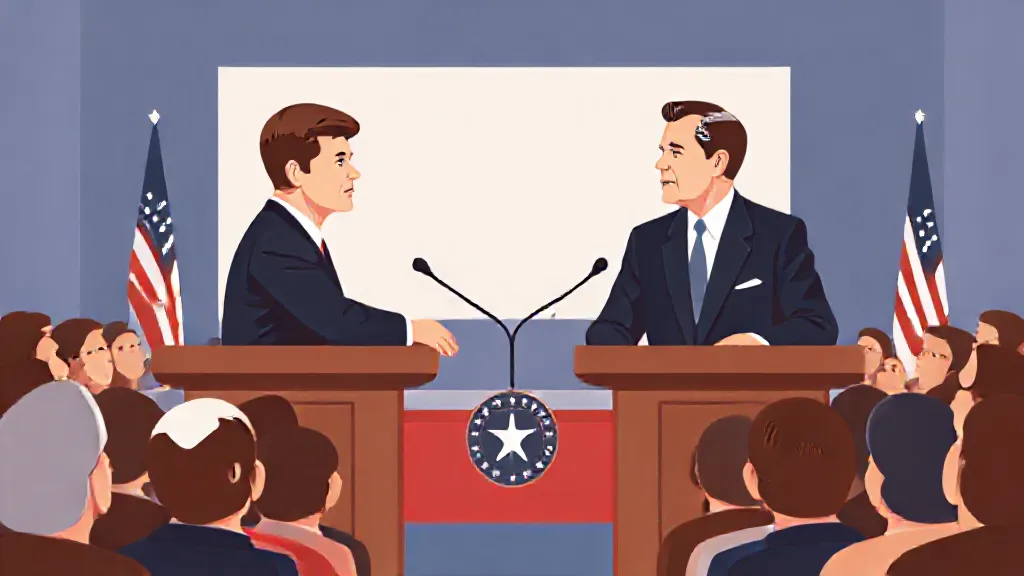The first presidential debate in the United States occurred on September 26, 1960, between Senator John F. Kennedy and Vice President Richard Nixon. This landmark event took place at the CBS studios in Chicago, Illinois, and marked a significant moment in American political history.
The debate was not only a pivotal moment for both candidates but also set the stage for future presidential elections and the role of televised debates in shaping public perception of candidates.
The Context of the 1960 Presidential Election
The 1960 election was characterized by a nation grappling with various social and political issues, including the Cold War, civil rights, and economic prosperity. Kennedy, a young and charismatic senator from Massachusetts, represented a new generation of leadership, while Nixon, who had served as Vice President under Dwight D.
Eisenhower, was seen as the experienced candidate. The televised debates provided a platform for both candidates to present their visions for America, and the stakes were high as the election was expected to be closely contested.
Television's Role in the Debate
The 1960 debate was the first to be broadcast on television, which played a crucial role in shaping the public's perception of the candidates.
Viewers who watched the debate on television noted Kennedy's calm demeanor and confident delivery, while those listening on the radio perceived Nixon as the more articulate candidate. This disparity highlighted the growing influence of television as a medium for political communication and foreshadowed how future elections would be influenced by visual presentation and media strategy.
The Format of the Debate
The format of the 1960 debate included questions posed by a panel of journalists, allowing for a more dynamic exchange between the candidates.
The subjects covered included domestic issues, foreign policy, and the candidates' personal philosophies. This structure not only engaged the audience but also allowed voters to gain insights into the candidates' positions on critical issues facing the nation at the time.
Impact on Future Debates
The success of the 1960 debate led to the establishment of presidential debates as a staple of American electoral politics.
Subsequent elections saw the inclusion of debates as a means for candidates to communicate directly with voters. The format evolved over the years, with changes in the structure, number of debates, and the inclusion of various media platforms, reflecting the changing landscape of American politics and technology.
Public Reaction and Voter Behavior
The immediate aftermath of the debate saw a significant shift in public opinion polls, with Kennedy gaining a notable lead over Nixon.
The debate's impact on voter behavior underscored the importance of image and presentation in politics. Voters began to recognize that how candidates presented themselves could be as influential as their policies and positions, leading to a more media-savvy approach in future campaigns.
Historical Significance and Legacy
The 1960 debate is often regarded as a turning point in American political history.
It not only changed the way candidates campaigned but also how voters engaged with the political process. The legacy of the debate continues to influence modern elections, with candidates preparing extensively for debates and strategizing their media appearances to maximize their appeal to voters.
Further Reading and Resources
For those interested in learning more about the history of presidential debates, several resources provide in-depth analyses and accounts of the events.
Books such as "The Great Debates: Kennedy vs. Nixon" by Alan Schroeder and documentaries exploring the evolution of presidential campaigns offer valuable insights into the significance of debates in American political culture. Additionally, the Commission on Presidential Debates provides historical context and information about past debates, making it a useful resource for educators and students alike.
In conclusion, the first presidential debate in 1960 not only marked a significant moment in American politics but also set the stage for the future of political communication. As the landscape of media continues to evolve, the lessons learned from this debate remain relevant, illustrating the enduring importance of effective communication in the pursuit of political office.
